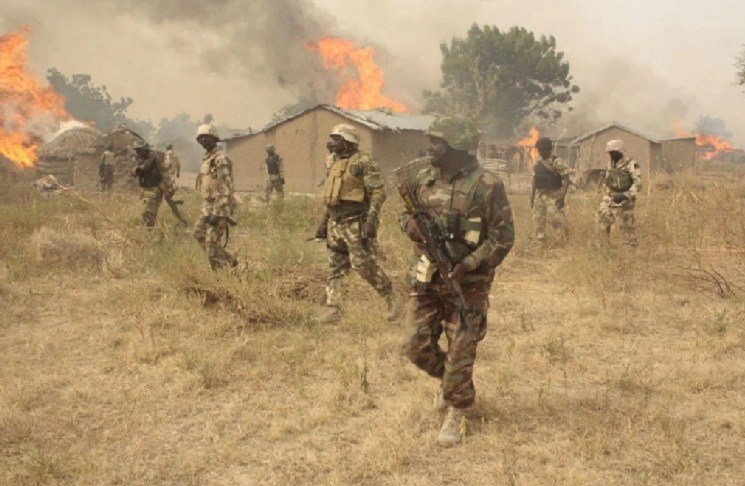-
Boko Haram and ISWAP engaged in multi-day clashes across Lake Chad islands.
-
Casualties reported over 200; intelligence notes floating bodies and shallow burials.
-
Conflict marks shift to sustained territorial campaign, threatening civilians and trade routes.
No fewer than 200 insurgents have reportedly died following clashes between Boko Haram and the Islamic State West Africa Province (ISWAP) in the Lake Chad region.
According to counter-insurgency expert Zagazola Makama, the fighting occurred between November 5 and 8, 2025, spanning key islands including Sahel 1, Dogon Chuku, Mangari, and riverine basins such as Tumbun Gini, Tumbun Dalo, and Dumba.
Makama’s report indicates Boko Haram fighters, under commanders Hassan Buduma and Mohd Hassan, employed motorized watercraft with heavy weapons to launch an amphibious-style assault on ISWAP positions. The offensive forced ISWAP to abandon multiple camps and retreat to mainland hideouts in Ali Jillimari, Metele, Kangarwa, and Gudumbali. Intelligence surveillance reportedly identified several bodies in water and shallow sand pits, though the exact casualty figure remains unclear.
Sources reveal Boko Haram aims to eliminate ISWAP from the islands to control critical supply and smuggling routes connecting Nigeria, Niger, Chad, and Cameroon.
READ ALSO: Jonathan Denies Linking Buhari to Boko Haram, Says Comments Misrepresented
ATTENTION: Click “HERE” to join our WhatsApp group and receive News updates directly on your WhatsApp!
These corridors generate significant revenue through extortion of fishermen, traders, and transport operators. The ongoing struggle has intensified following the receding water levels in Lake Chad, which reopened land routes and exposed old settlements, creating fresh flashpoints.
Humanitarian and Security Concerns
Security analysts warn that the clashes represent a shift from isolated skirmishes to a sustained territorial campaign, with potential ambushes, roadside bombs, and attacks on transport routes linking Metele, Kangarwa, and the Maiduguri–Damasak highway.
Communities in Kukawa and Abadam Local Government Areas, particularly fishermen, transport operators, and farmers, are likely to bear the immediate brunt of the violence, heightening an already precarious humanitarian situation.
Boko Haram and ISWAP split in 2016 over ideological differences. ISWAP had maintained dominance in the Lake Chad area since the death of Boko Haram leader Abubakar Shekau in 2021. Analysts note that the current clashes could reshape the balance of power between the factions, with civilians caught in the crossfire.

